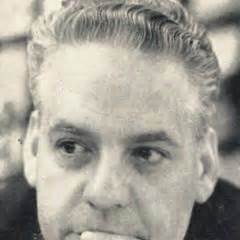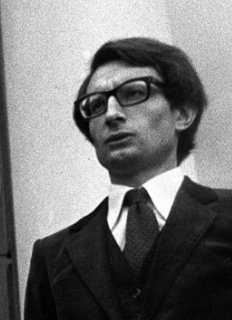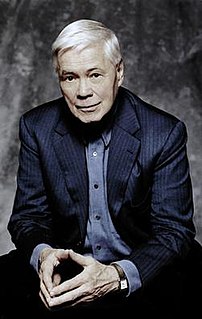A Quote by Booker T. Washington
I believe that one always does himself and his audience an injustice when he speaks merely for the sake of speaking. I do not believe that one should speak unless, deep down in his heart, he feels convinced that he has a message to deliver.
Related Quotes
The fact that labour is external to the worker, i.e., it does not belong to his intrinsic nature; that in his work, therefore he does not affirm himself but denies himself, does not feel content but unhappy, does not develop freely his physical and mental energy but mortifies his body and his mind. The worker therefore only feels himself outside his work, and in his work feels outside himself.
Sable hair bisected his pecs and arrowed down to the straight and unequivocal statement of his returned interest. Forcing my gaze to his face, I said, "I really don't think we have time for that." "You know that, and I know that, but HE doesn't believe it." "Believe it," I told HIM. J.X.'s mouth tugged into one of those heart-stopping smiles. "Maybe you should whisper in his ear.
Infidelity does not consist in believing, or in disbelieving; it consists in professing to believe what he does not believe. It is impossible to calculate the moral mischief, if I may so express it, that mental lying has produced in society. When a man has so far corrupted and prostituted the chastity of his mind, as to subscribe his professional belief to things he does not believe, he has prepared himself for the commission of every other crime.
I can't really believe that it's over. "I'll speak for her." Every face turns to where Sean Kendrick stands a little apart from the crowd, his arms crossed. "This island runs on courage, not blood," he says. His face is turned towards me, but his eyes are on Eaton and his groups. In the hush after he speaks, I can hear my heart thudding in my ears.
Unless a man gives himself entirely to the Cross, in a spirit of humility and self-abasement; unless he casts himself down to be trampled underfoot by all and despised, accepting injustice, contempt and mockery; unless he undergoes all these things with joy for the sake of the Lord, not claiming any kind of human reward whatsoever - glory or honor or earthly pleasures - he cannot become a true Christian.
The Unitarian Church has done more than any other church to substitute character for creed, and to say that a man should be judged by his spirit; by the climate of his heart; by the autumn of his generosity; by the spring of his hope; that he should be judged by what he does; by the influence that he exerts, rather than by the mythology he may believe.
I have heard Shree Rajneesh and have been inspired by his talks. His works are sublimne and seek to liberate the soul of humans. Indeed his presentation is unique, his goal is great and his success in liberating each person from the mafia surrounding the soul is rewarding reading. The message that he had to deliver must reach everywhere. Ultimately salvation comes when one attains freedom from oneself. That, I believe, is the consummation which exposure to Osho may help.
Indeed, theological discourse offers its strange jubilation only to the strict extent that it permits and, dangerously, demands of it wokman that he speak beyond his means, precisely because he does not speak of himself. Hence the danger of a speech that, in a sense, speaks against the one who lends himself to it. One must obtain forgiveness for every essay in theology. In all senses.
A teacher can never truly teach unless he is still learning himself. A lamp can never light another lamp unless it continues to burn its own flame. The teacher who has come to the end of his subject, who has no living traffic with his knowledge but merely repeats his lesson to his students, can only load their minds, he cannot quicken them.
When one person is struck by the Word, he speaks it to others. God has willed that we should seek and find His living Word in the witness of a brother, in the mouth of man. Therefore, the Christian needs another Christian who speaks God’s Word to him. The Christ in his own heart is weaker than the Christ in the word of his brother; his own heart is uncertain, his brother’s is sure.



































